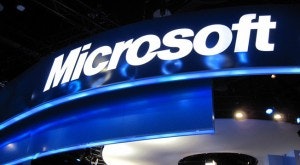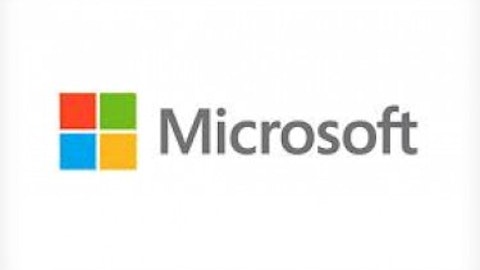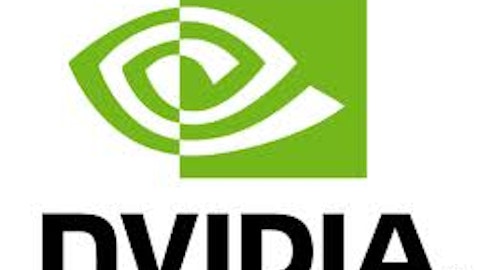The worldwide PC industry has been getting weaker and weaker, significantly driving down the stock prices of several big PC makers, such as Microsoft Corporation (NASDAQ:MSFT), Dell Inc. (NASDAQ:DELL) and Hewlett-Packard Company (NYSE:HPQ).

HP was still the leader in the global PC market, with nearly 12 million shipments in the first quarter, accounting for 15.7% of the total PC market. HP experienced a year-over-year drop of around 23.7% in its shipments. Lenovo was not growing or declining, shipping 11.7 million units, accounting for 15.3% of total PC market share. Dell Inc. (NASDAQ:DELL)’s shipment in the first quarter of 2013 was of more than 9 million units, 10.9% lower than its shipments in the first quarter last year. Dell came in as the third biggest PC maker on the market, with about 11.8% market share.
Microsoft Corporation (NASDAQ:MSFT) generates most of its revenue from Microsoft Business
Bob O’Donnell of the IDC commented that Windows 8 has not only failed to contribute positively to the overall PC market, but it also slowed the market down. However, I think Microsoft Corporation (NASDAQ:MSFT)is not affected as much as other big PC makers. The majority of its revenue and operating income, $24 billion and $15.7 billion, respectively, were generated from the Microsoft Corporation (NASDAQ:MSFT)Business Division. This division includes Microsoft Office system and Microsoft Corporation (NASDAQ:MSFT) Dynamics business solutions.
Interestingly, around 80% of the Microsoft Corporation (NASDAQ:MSFT) Business Division’s revenue derived from the sales to businesses. Consequently, this revenue and income stream could be considered relatively stable. After all it is not quick or easy to change a whole IT system. Actually, in the past three years, this segment’s operating income has increased from $12.1 billion to $15.7 billion. The Windows and Windows Live Division contributed around $18.8 billion in revenue and $11.9 billion in operating income. This segment is to develop and market PC operating systems and PC hardware products.
Hewlett-Packard has been hurt
Hewlett-Packard Company (NYSE:HPQ) has gotten hit quite hard. It generated most of its revenue, $35.6 billion, from the Personal Systems segment, which includes notebooks and desktops, while the Printing segment contributed around $24.5 billion in revenue in 2012. Thus, the total Printing and Personal Systems amounted to as much as $60.1 billion in revenue.
Hewlett-Packard is in the turnaround process under the leadership of Meg Whitman. In October last year, its stock experienced a free fall due to a $8.8 billion write down for Autonomy, the business it acquired for around $11 billion several years ago. Out of those $8.8 billion charges, $5 billion was attributable to “serious accounting improprieties, disclosure failures and outright misrepresentation.” Thus, even after a whopping $8.8 billion write-down, Hewlett-Packard still had more than $35 billion in its total goodwill and intangible assets, while its equity was only at $22.9 billion.
Dell – Desktop PCs accounts for the majority of its revenue
Dell also derived most of its revenue from the Client products segment, including Mobility and Desktop PCs. While the Mobility generated $15.3 billion in revenue, or 27% of the total revenue, its Desktop PCs segment contributed nearly $13 billion in 2012 revenue, representing 23% of its total revenue. Southeastern Asset Management, Dell’s largest shareholder, has valued its PC business at around $2.78 per share, while the Server business and Support and Deployment were worth $4.44 and $3.89 per share, respectively. Collectively, Southeastern Asset Management thought Dell should be worth around $23.72 per share.
Dell also attracted attention from activist investor Carl Icahn, who has accumulated as much as a 6% stake in the company. Icahn suggested that Dell should pay $9 special dividend to shareholders, and the value of Dell should worth around $22.81 per share.
At around $14 per share, Dell is worth around $24.6 billion on the market. Dell pays shareholders a dividend yield at 2.3%. A $9 special dividend would create an additional yield of as much as 64.3% for Dell’s shareholders. Microsoft Corporation (NASDAQ:MSFT) is trading at around $29 per share, with a total market cap of $242 billion. At its current price, Microsoft’s shareholders could get a dividend yield of 3.2%. Hewlett-Packard is trading at nearly $21 per share, with a total market cap of $40.7 billion. Its dividend yield is at 2.5%.
My Foolish take
Among the three tech giants, I like Microsoft the best, with the least exposure to the overall declining PC market and its consistent free cash flow generating ability. Microsoft’s price/free cash flow yield is quite decent at 12.1%. Hewlett-Packard and Dell are more opportunistic stocks on the company’s turnaround in the case of Hewlett-Packard, and the buyout bidding war in the case of Dell, respectively.
The article Which Tech Giant is the Safest When the PC Industry Struggles? originally appeared on Fool.com and is written by Ahn HOANG.
Copyright © 1995 – 2013 The Motley Fool, LLC. All rights reserved. The Motley Fool has a disclosure policy.


